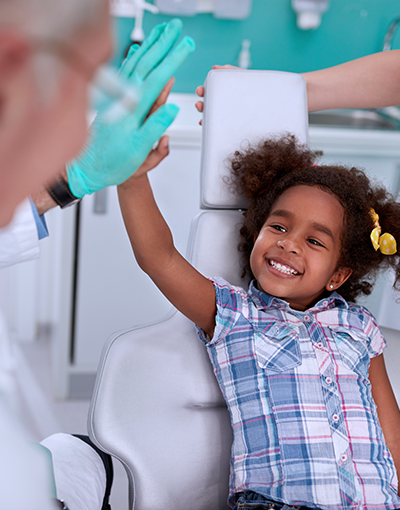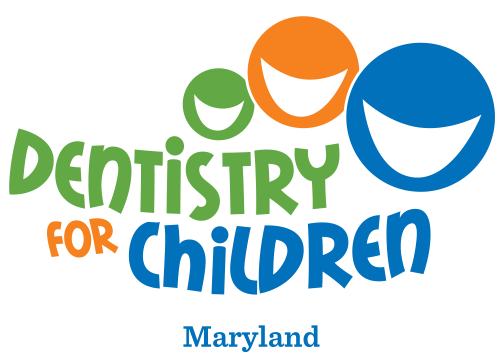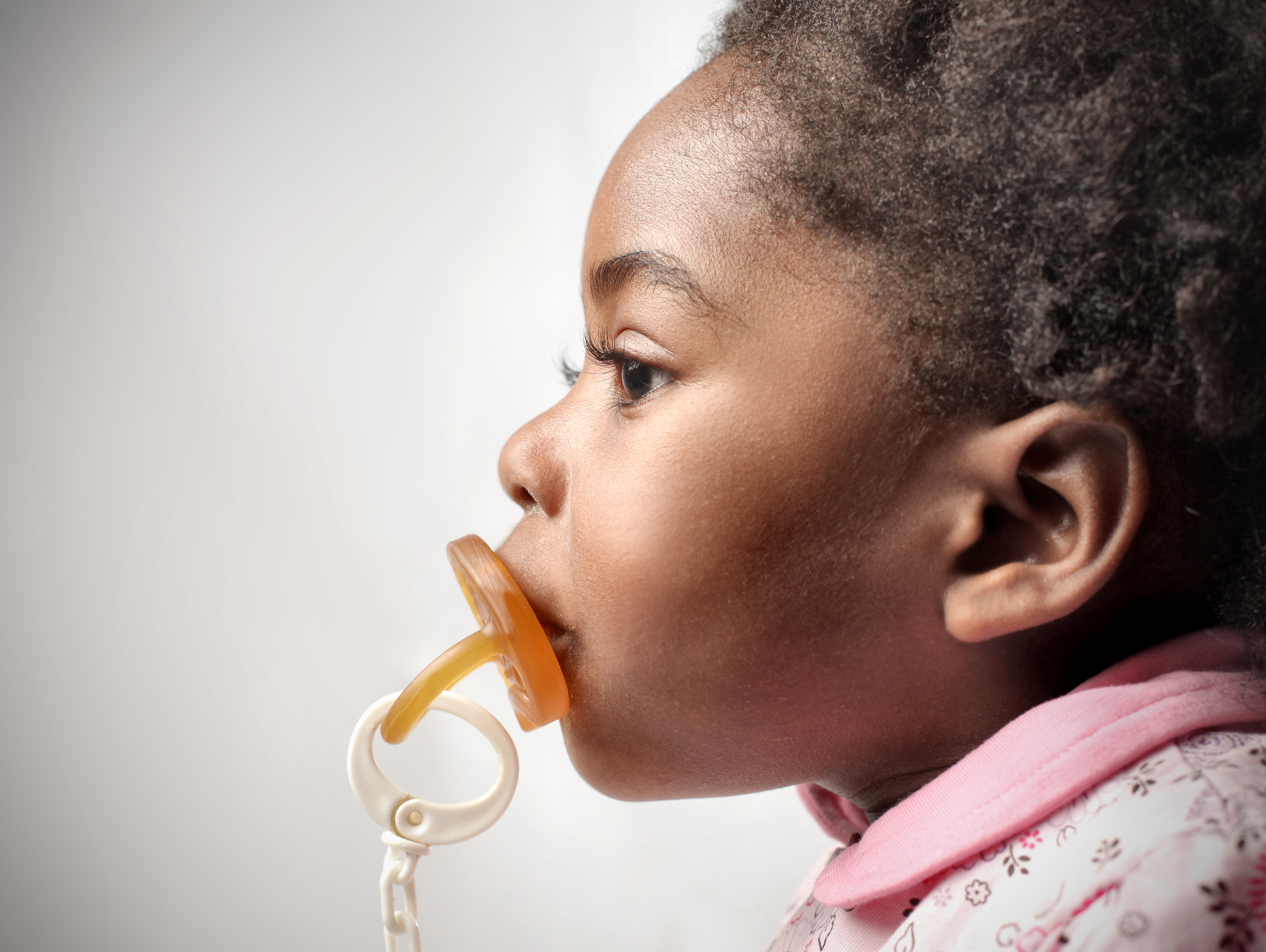
It is our goal as pediatric dentists to keep your child’s smile happy and healthy, but in some cases, a tooth extraction may be necessary to maintain optimal oral health.
Why Are Tooth Extractions Necessary?
Tooth extractions are recommended when a tooth is badly damaged and unfortunately can’t be repaired with a dental crown or a filling. This could be due to tooth decay, infection, or dental trauma. In some cases, your child’s dentist may recommend a tooth extraction to relieve crowding for orthodontic treatment.
Even though these baby teeth will fall out, a tooth extraction can keep your child from experiencing pain, swelling, and discomfort caused by a damaged tooth. If a decayed or infected tooth is left untreated, the infection can spread into the nerve of the tooth and eventually the jawbone. If your child complains of tooth pain, don’t wait. We want to make sure your child has a lifetime of healthy smiles!
About the Procedure
An extraction procedure is simply the removal of the tooth from the socket and is performed by a dentist or oral surgeon. This extraction could be due to tooth decay, periodontal disease, dental trauma, or orthodontic needs. The dentist will ensure your child is comfortable and pain-free using the appropriate anesthesia for the procedure, and your child will be back to optimal oral health in no time!
After Procedure Care for Children’s Tooth Extractions
Following an extraction procedure, the most important step is to stop the bleeding of the extraction site and allow a clot to form. This is achieved through positive pressure. Have your child bite down tightly on a piece of gauze for 15 to 30 minutes. Younger children may be unable to apply positive pressure on their own which will require the parent to hold the gauze tightly with your finger for the same amount of time.
After applying positive pressure to aid in the formation of a clot, simply focus on recovery. For the first 24 hours, help your child rest and relax and don’t allow them to jump back into a normal routine. Follow these steps to help with a comfortable recovery:
- Apply a cold compress, such as an ice pack, to reduce any swelling that may be present.
- Follow the doctor’s instructions on medication and have your child take them as directed, including any over-the-counter medications.
- Do not let them drink from a straw, as it can dislodge the clot in the extraction site.
- Eat soft foods, such as pudding, yogurt, and applesauce.
- Do not rinse the extraction site and carefully spit.
- Your child can brush and floss as normal, avoiding the extraction site.
Typically, patients only experience slight discomfort following the procedure, and can be alleviated with the recommended dose of children’s ibuprofen or acetaminophen. If the pain does not subside or becomes severe, please contact our office.
Tooth Extractions FAQs
How Long is the Recovery Period?
The recovery period following a tooth extraction is typically just a few days. With rest, taking recommended medications, and taking care of the extraction site, your child will be back to normal before you know it. If the pain is severe or is not relieved by pain medication, contact our office as soon as possible.
How to Reduce Swelling After a Tooth Extraction Procedure?
If swelling is present following a tooth extraction procedure, simply use a cold compress, such as an ice pack, on the outside of the cheek to help relieve swelling of the extraction site. Do not use the ice pack for more than 10 minutes at a time. If the swelling does not begin to show any improvement, contact our office.
What Can be Eaten After a Tooth Extraction Procedure?
After a tooth is extracted, it is important to be careful with the extraction site. Have your child eat soft foods for the first few days after the procedure. Foods such as yogurt, pudding, mashed vegetables, smoothies, and applesauce are all great options to have on hand.




 Find Us
Find Us